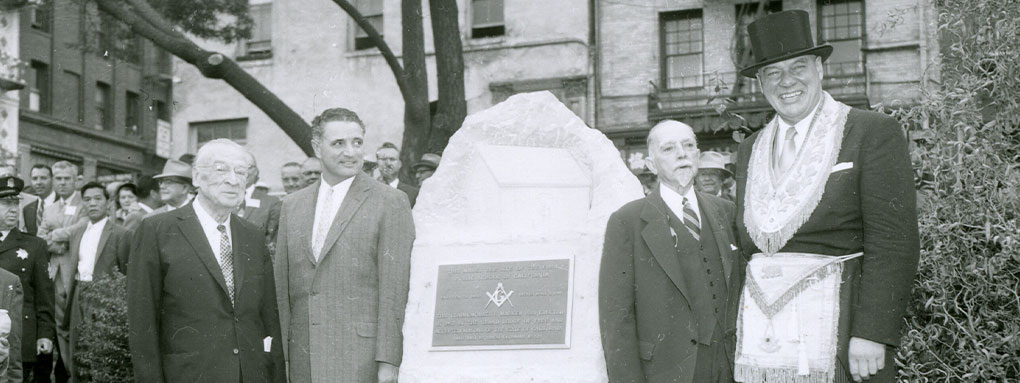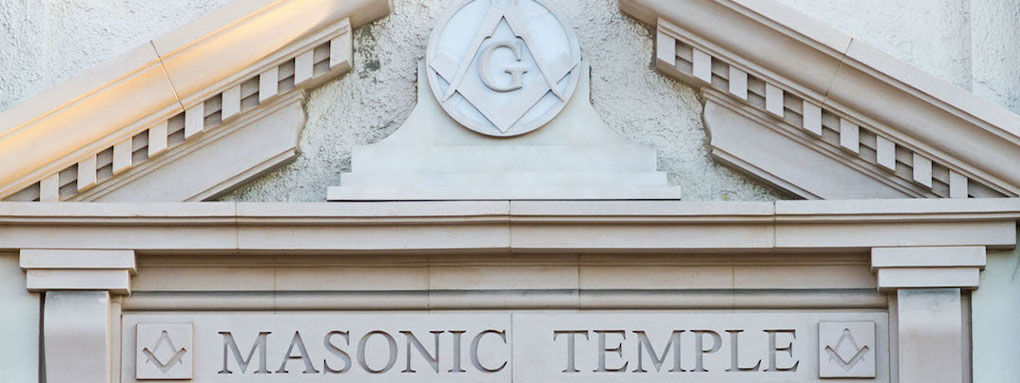History of Freemasonry History of Freemasonry
The history of amassonry between tradition and principles.
The history of Freemasonry is lost between myth and history. Sometimes these origins are traced back to the construction of the Temple of Solomon. In fact, it is not easy to historically reconstruct the birth of Freemasonry due to the great secrecy in which the first "lodges" were enveloped. It can be said that it began with the associations of stonemasons during the Middle Ages.
At that time, these first professional associations established patronage societies, and to protect the secrets of their profession, a series of handshakes and other secret rituals and symbols. Soon, many of these early Masons organized themselves into Masonic "lodges" with the aim of assisting each other and taking care of their families in case of injury or death. Only later in England, in the 17th century to be precise, the possibility of participating in these lodges was also extended to other professionals (mainly ecclesiastics and doctors). Later in 1717 four of these lodges merged with London to form the world's first 'grand lodge'. The Freemasons then formed large lodges in Ireland and Scotland, then in the rest of Europe. In a short period of time, lodges were born all over the world. This was the beginning of modern Freemasonry (defined by some as "speculative") aimed at investigating the world and learning moral teachings.

History and traditions of Freemasonry
Historically Freemasonry is an "esoteric discipline" in the sense that some aspects of its internal activity are not in the public domain, such as the ritual of affiliation and progression in society. Nowadays, Freemasonry operates fully in the light of the sun, doing its utmost every day for the well-being of its community.
Moreover, thanks to the charm in which it is immersed, some rituals have become public knowledge, such as that of laying the first stone of a civic building. Or the titles that can be boasted in a lodge: whether it is an apprentice, Companion or Grand Master of the Lodge, this information is now part of the public imagination as regards Freemasonry. Likewise, its symbols (square and compass) are increasingly widespread and present on banknotes and buildings. The square and the compass, in fact, are two of the tools that the ancient stonecutters used to work the stone and build buildings. For modern Freemasons, they are about building the character of each person (to underline the transition to a spiritual position taken by the congregation in the modern era). The letter "G" in the center stands for Geometry, the basis of any construction.
Principles of Freemasonry
Among the founding principles of our society we find precise indications of the type of people who can become part of the brotherhood, they are: "the members of a Lodge must be good and sincere men, born free and of a mature and discreet age, not slaves , not women, not immoral or scandalous men, but men of good reputation ".
The principle of apolitical nature of the Order as a whole and of the individual Lodges is also sanctioned, which is required to live in compliance with the laws and authorities of the State. In fact, the individual Freemason is allowed to nurture political convictions and translate them into action, but only in a personal capacity and as long as he does not involve Freemasonry in any way. There is also a moral obligation to practice charity and share strong bonds with one's companions. So, in conclusion, Freemasonry becomes the Center of Union and the means to tie a sincere friendship between people who would have remained perpetually strangers.

Who are some famous Freemasons?
Trying to make the world a better place, many great personalities have met on their way and embraced the Masonic ideal. It is not surprising in fact that the list of famous Freemasons is long and varied. Here are just a few you might recognize.
Founding fathers such as George Washington, Benjamin Franklin and Miguel Hidalgo
Civil rights leaders including Megger Evers and John Lewis and Booker T. Washington
Mythical conquerors like Davy Crockett, Charles Lindbergh and Buzz Aldrin
The musicians Wolfgang Amadeus Mozart and William "Count" Basie and Johann Sebastian Bach
The writers Oscar Wilde, Mark Twain and Ernest Hemingway
Some great athletes like "Sugar" Ray Robinson, Jack Dempsey and Scottie Pippen of the Chicago Bulls!
Many famous actors including John Wayne and Harry Houdini
Entrepreneurs Henry Ford, Charles Hilton and Colonel Harland Sanders.
